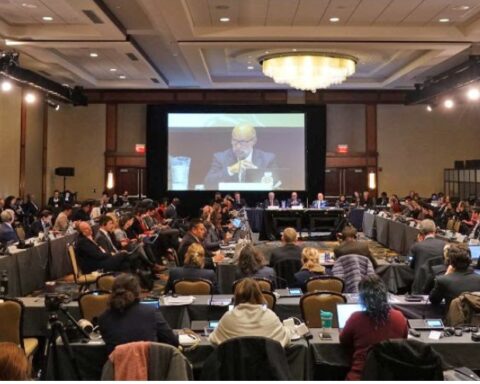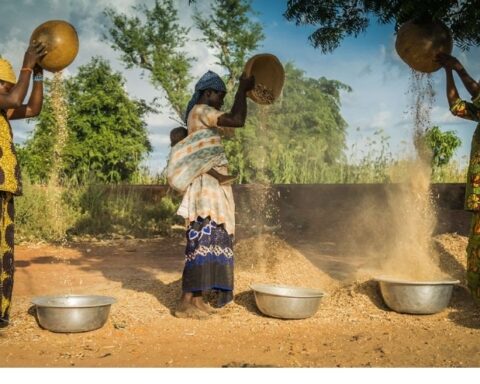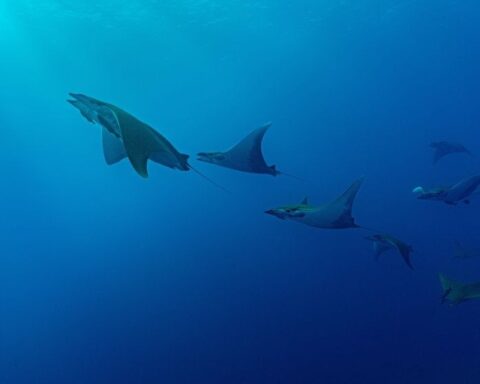The Global Environment Facility’s 186 member governments on Monday allocated $916 million for international action on biodiversity, climate change, nature renewal, and pollution control, and advanced five Integrated Programs designed to tackle complex challenges in their entirety.
The GEF Council, meeting in Washington, DC, approved funding for 45 projects and programs, including four blended finance initiatives involving the private sector. The support will directly help more than 12 million people, including Indigenous Peoples and local communities.
The work program the second-largest in the GEF’s history includes $530 million for Integrated Programs for the ocean, food systems, transportation infrastructure, wildlife conservation, and critical forest biomes that have been designed to break down silos and advance holistic action across sectors and borders.
“To achieve impact that lasts, we need to work in an integrated and inclusive way,” said Carlos Manuel Rodríguez, GEF CEO and Chairperson.
“The GEF is moving quickly and efficiently to target donor contributions to urgent needs. We also recognize that financing alone cannot reverse environmental degradation for the long term. This work program therefore stands out not only for its size but also for its focus on a whole-of-society approach to phasing out harmful practices.”
The GEF Trust Fund work program is set to mobilize $7.5 billion in co-financing, including from bilateral governments and multilateral development banks.
It spans 77 countries including 22 Least Developed Countries and 14 Small Island Developing States, with the largest regional shares of the funding package going to Africa and Asia.
The total GEF Family of Funds financing package is expected to exceed $1 billion this week when the Council considers another $203 million from the Least Developed Countries Fund (LDCF) and Special Climate Change Fund (SCCF). The new Global Biodiversity Framework Fund Council will also meet for the first time this week.
The GEF Trust Fund programming will contribute to global environment benefits across the board, with boosts for protected areas, landscape management, greenhouse gas emissions reduction, and terrestrial and marine ecosystems. It is also set to advance 21 of the 23 targets in the Kunming-Montreal Global Biodiversity Framework.
With the Council’s decision, the GEF has deployed nearly half of the record $5.3 billion eighth replenishment for the 2022-2026 period.
While most of the GEF-8 support approved on Monday will be provided as grants, the work program also includes $81 million for four blended finance projects that are set to mobilize $1.36 billion in outside investment – a co-financing ratio of 17 to 1. This includes innovative initiatives related to biodiversity, climate change mitigation, land restoration, and chemicals and waste, and a particular focus on innovative capital market solutions and small- and medium-sized enterprises.
All the projects and program proposals in the work program include an overt gender emphasis as required in the GEF policies and guidance. This includes incorporating gender perspectives in project planning, working to ensure that women’s needs and potential contributions are taken into account, and that women benefit from work undertaken and can access related finance and other resources. Women, women’s groups, and gender experts are also key stakeholders in project and program design and assessment.
The financing package includes funding for four new Integrated Programs – Clean and Healthy Ocean, Food Systems, Greening Transportation Infrastructure Development, and Wildlife Conservation for Development – and the expansion of the previously approved Amazon, Congo, and Critical Forest Biomes Integrated Program to add projects in Guinea Bissau and Togo, and to include Guyana in efforts to integrate conservation efforts in the Amazon basin.
GEF-funded projects and programs are implemented by selected international organizations in partnership with national and local institutions. In this work program, the largest shares of the funding will be managed by the UN Food and Agriculture Organization, the UN Development Program, the International Fund for Agriculture Development, the World Bank, the World Wildlife Fund-US, and the International Union for the Conservation of Nature.








